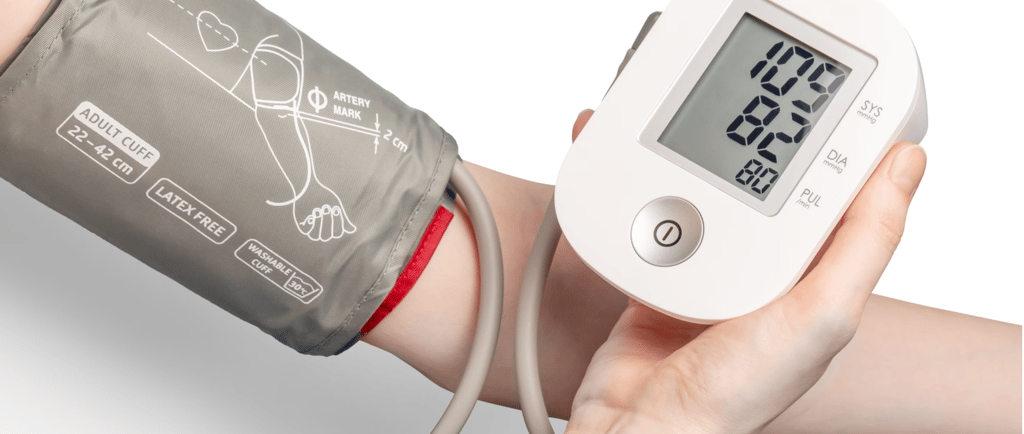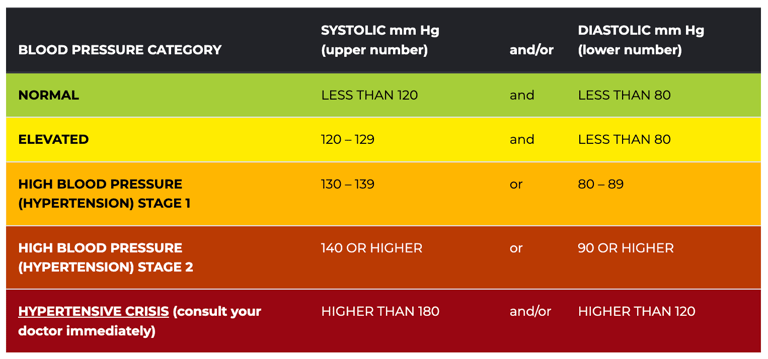High Blood Pressure and Bouldering
The metric you should be monitoring
Zachary Huff, PT, DPT
3/18/20254 min read


If you’re like most climbers, you probably think more about your grip strength, technique, and endurance than about your blood pressure (BP).
But here’s the thing—BP plays a huge role in how your body handles stress, recovers, and performs.
Ever felt lightheaded after a tough climb?
Struggled with fatigue or slow recovery?
Wondered if your heart is handling the effort well?
These could all be BP-related factors. While climbing and exercise are great for heart health, understanding how BP works can help you train smarter, recover better, and reduce long-term risks.
You don’t have to be an “older adult” to start thinking about BP. Hypertension (high BP) is increasingly common in active populations, and many people have high BP without even knowing it.
Why Does High BP Matter for Climbers?
Higher BP puts more stress on the heart & blood vessels.
It can cause delayed recovery, fatigue, and dizziness (especially in high-intensity sessions).
It can increase your risk of INjuries, reduce endurance, and is related to cardiovascular disease later in life.
What is blood pressure?
Blood pressure is the force of your blood pushing against the walls of your arteries as your heart pushes blood through your body. It is measured with two numbers, one over the other, in mmHg (millimeters of mercury).
Systolic (Top Number) – Pressure when your heart pumps blood out.
Diastolic (Bottom Number) – Pressure when your heart rests between beats.
Based on a number of factors, your blood pressure could range from "normal" to "oh no, that's way too high" levels. Fortunately, most people fall have a blood pressure that falls closer to "normal" or "elevated."


Who gets high blood pressure?
High blood pressure affects 1 in 3 people in the U.S. It affects men more often than women, especially in older age groups and those with a higher body mass index. We know a few things matter more than others - things like body mass index (BMI) and age being the two most predictive factors. Some people can develop high bP despite being younger and in good physical health. This can be related to:
Lifestyle: High stress, dehydration, excessive caffeine or alcohol.
Diet: High sodium, low potassium.
Training Load: Overtraining, inadequate recovery
Genetics: A close family member also has high BP
How would I be able to tell if i had high BP?
The easiest way is buy an automated blood pressure cuff that goes over your upper arm (bicep/tricep area). These are reliable and can help you keep track of your bP. A few things to keep in mind...
BP readings vary based on lifestyle factors and how active you were 5-10 minutes before your BP test.
Higher readings are common during/right after exercise, especially if you've been bouldering or hitting heavy resistance training.
if you have an elevated BP, you should consider testing before, during, and immediately/thirty minutes after exercising. Your BP should return to normal within 30 - 60 min after exercise.
If that's not your jam, You can ask any healthcare professional - most (if not all) have been trained to perform blood pressure screenings and help you understand your results.
What should you do if you have high BP?
First, make sure you're out of the "danger zone," that's a BP +180/120mmHg. If you're in this zone, retake your BP after 5 minutes - if it's still elevated, contact your medical provider immediately.
More importantly, if you're in this zone and you're experiencing chest pain, dizziness, mid-back pain, blurred vision, numbness, difficulty speaking, or numbness you should contact 911 for emergency assistance.
If you're above 140/90mmHg, medication + lifestyle changes are the most effective ways to lower your blood pressure. If you're looking at something lower than this, the recommendations are often about looking at the low-hanging fruit. For many of us, that would be stress, dehydration, and inadequate recovery.
Stress: Chronic stress stimulates the sympathetic nervous system, leading to increased heart rate and vasoconstriction, which can elevate BP. Acute stress responses are normal, persistent stress without adequate coping mechanisms may result in sustained hypertension.
Dehydration: When dehydrated, the body's blood volume decreases, prompting the heart to pump harder to maintain oxygen delivery, which can raise BP. Additionally, dehydration can cause an imbalance in electrolytes, affecting heart rhythm and vascular resistance, further influencing BP levels.
Under-Recovery (Overtraining): Overtraining without enough rest can lead to hormonal imbalances, including elevated cortisol levels, which may increase BP. Symptoms of overtraining, such as fatigue and decreased performance, are signals that you may not be getting enough rest between training sessions.
📌 Takeaway: BP has a lot of factors - if you’re seeing high readings, look for contributing factors and modify (if possible).
References:
Aly, K., & Yeung, P. K. (2023). Post-Exercise Hypotension: An Alternative Management Strategy for Hypertension and Cardiovascular Disease? Journal of Clinical Medicine, 12(13), 4456. https://doi.org/10.3390/jcm12134456
Armstrong, L. E., Bergeron, M. F., Lee, E. C., Mershon, J. E., & Armstrong, E. M. (2022). Overtraining Syndrome as a Complex Systems Phenomenon. Frontiers in Network Physiology, 1, 794392. https://doi.org/10.3389/fnetp.2021.794392
Gordon, A. M., & Mendes, W. B. (2021). A large-scale study of stress, emotions, and blood pressure in daily life using a digital platform. Proceedings of the National Academy of Sciences, 118(31), e2105573118. https://doi.org/10.1073/pnas.2105573118
Kosowski, W., & Aleksandrowicz, K. (2024). Hypertensive Response to Exercise as an Early Marker of Disease Development. Biomedicines, 13(1), 30. https://doi.org/10.3390/biomedicines13010030
Kuepper, T., Morrison, A., Gieseler, U., & Schoeffl, V. (2009). Sport Climbing with Pre-existing Cardio-pulmonary Medical Conditions. International Journal of Sports Medicine, 30(06), 395–402. https://doi.org/10.1055/s-0028-1112143
Kunimatsu, N., Tsukamoto, H., & Ogoh, S. (2024). Exaggerated Blood Pressure Response to Exercise Is a Risk of Future Hypertension Even in Healthy, Normotensive Young Individuals—Potential Preventive Strategies for This Phenomenon? Journal of Clinical Medicine, 13(19), 5975. https://doi.org/10.3390/jcm13195975
